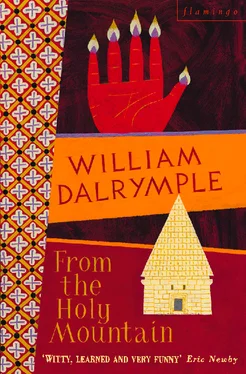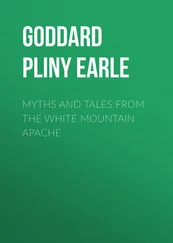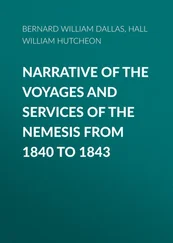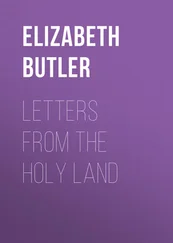‘What will happen to them?’ I asked.
‘They are better off than the Greeks in Istanbul,’ said Fr. Domenico. ‘They are too few to be a threat. The Turks do not mistreat them. But the community will die out. The young are still emigrating, mainly to Brazil. Christians may have been here since the time of the Apostles, but I doubt whether there will be any here at all in twenty years’ time.’
I asked what the Antioch imams thought of his activities in their town.
‘When I first arrived they came to see me and asked, “What do you believe in?” So I showed them some books in Turkish. One was a hymn book which contained the words “Jesus Son of God”. They were scandalised, and half of them left then and there muttering about blasphemy. But two or three imams stayed on for tea and we discussed theology. They accused me of using the wrong gospels and said that only the Gospel of Barnabas was true.’
‘The Gospel of Barnabas?’
‘It’s an apocryphal late-medieval gospel written by a Christian who converted to Islam. The Muslims like it because it says Jesus is a good man and a prophet but not the son of God. I told them that the Gospel of Barnabas was medieval and that its author obviously knew nothing, because he describes Jesus going up to Jerusalem by boat. We argued all day. Since then I’ve had no real trouble.’
I asked whether he had converted anyone in all the time he had been in the country. He shook his head. ‘Not one,’ he said, smiling. ‘There are only ten Catholic families here, all Maronites who came from Lebanon in the last century. But in the mountains there are many Armenians who have pretended to be Muslims ever since the massacres of 1915. Sometimes they come and get baptised by me, even though I am a Catholic. On their papers they say they are Muslim, but they know – and I know – the real situation.’
As I was leaving I asked Fr. Domenico whether he was lonely living on his own in a foreign country, a representative of what was now thought of as a foreign faith. He shrugged: ‘What is loneliness?’ he said.
The Buyuk Antakya Oteli is a remarkable example of the provincial Turkish talent for spending large sums of money building a very good hotel, then, in a matter of months, letting it decay into a morass of broken gadgets, leaking geysers and fraying electrics. There are no bulbs in the light sockets, no ballcocks in the lavatories, no water in the taps, no handles on many of the doors.
On returning from Fr. Domenico’s, I found a trail of red ants leading into my room, and a small rivulet of water from the flooded cistern snaking out of it in the opposite direction. The red plastic telephone was dead but the cockroach in the defunct shower unit was not. Worst of all, the air conditioner was bellowing hot muggy air into the room with a noise like a marching band. I went back down to Reception to try to get it fixed, and while standing around waiting for help I noticed an envelope in my pigeonhole.
It was from the manager, and contained two bits of bad news. The first was a brief note answering my query about the different ways of getting to the next stop on the way to the Tur Abdin: Urfa, the ancient Edessa. It appeared there was no train and only one bus service: inevitably it left late in the evening and arrived in the early hours of the morning – another night-bus journey. The second item was more ominous. It was a cutting from the English-language Turkish Daily News and concerned a PKK raid on a village near Midyat, the principal town of the Tur Abdin. There had been a firefight; two village guards had been killed and five others taken hostage by the Kurdish guerrillas and spirited away to the mountains.
I got out my map and searched for the village. It lay only a couple of miles from the monastery of Mar Gabriel, where I hope to spend much of next week.
HOTEL TURBAN, URFA, 12 AUGUST
The night bus dropped me off at a roundabout on the outskirts of Urfa at 3.00 a.m., and drove off into the night. Disorientated with sleep, it took a few minutes for it to sink in that I was alone, standing in the dark, at a considerable distance from the centre of town. Cursing the weight of the books in my baggage, I wandered through the deserted and dimly lit streets searching for a hotel.
Forty minutes later I arrived outside the Hotel Turban, and rattled like a madman on the door. After a while the owner appeared in his pyjamas. He seemed understandably surprised to see me standing there at four in the morning, hammering on his front door and howling to be admitted. For several minutes he peered warily through the glass, before his curiosity finally got the better of him and he let me in. I filled in a flutter of registration forms, and was admitted to a dingy room lit by a single, naked lightbulb. The room was filthy and contained only a plastic chair and a metal bedstead. But I was long past caring and immediately fell asleep on the bed, fully clothed.
I was woken by the light from the open window six hours later. It was not yet mid-morning, but already it was very hot. Outside, I could hear the tap-tapping of copper engravers at work in the bazaar outside. I shaved in a grimy basin at the top of the stairs, then went out into the glare.
Urfa was a proper Silk Route bazaar-town, straight out of the Arabian Nights: a warren of covered alleys loud with a Babel of different tongues – Arabic, Persian, Kurdish, Turoyo, Turkish. Everywhere the air was heavy with thick clouds of kebab-smoke and the smell of grilling meat. Through the shadows, lit intermittently by shafts of sunlight breaking through the skylights, passed a surging crowd of wild, tribal-looking men: lean, hawk-eyed, hard-mouthed Kurdish refugees from Iraq in their baggy pantaloons and cummerbunds; sallow Persian pilgrims from Isfahan in flapping black robes; weatherbeaten Yürük nomads from the mountains above Urfa; stocky Syrian Arabs in full jellaba and keffiyeh . Herds of fat-tailed sheep wobbled through the medieval arcades. Outside a tea house a party of nomad women, all dressed in different shades of purple calico, were sitting around a silver tray covered with white saucers full of oily vegetable delicacies. Their heads were shrouded under swathes of elaborate turban wraps, but their faces were uncovered and their cheeks were tattooed with crosses and swastika designs. Behind them a cauldron of pilaff steamed on a fire.
Urfa has always been a frontier town, filled with an explosive mix of different nationalities. At the time of John Moschos it lay on the most sensitive frontier in the world, separating the two great powers of late antiquity: Persia and Byzantium. As one of only two legal crossing points from East to West, Edessa – and especially the members of its large merchant class – grew plump on the trade which passed between the pair of hostile empires. From Byzantium the Persians bought gold and manuscript vellum; from Persia the Byzantines purchased Indian spices, Chinese silk and, above all, dark-skinned Asian slave girls. The Imperial treasury became rich from the customs duties – 12.5 per cent – levied on this merchandise, and checks at the border were rigorous. When Apollonius of Tyana, a pagan sage and wonder-worker, returned from a missionary journey to India and the East, he was asked by the Imperial customs officer what he had to declare, and replied: ‘Temperance, virtue, justice, chastity, fortitude and industry.’ The customs officer had heard all this before. ‘Where have you hidden the girls?’ he demanded.
Merchants were not the only people to cross the divide. Edessa was one of the great Byzantine university towns, and the scholars it attracted from Persia and beyond led to a rich cross-fertilisation of ideas in its lecture halls. There was a marked influence of Persian and Indian ideas on Edessa’s theology, and its theological school became notorious for the dangerous heterodoxy of its teachings. In this cosmopolitan environment the city’s most notorious heretic, Bardaisan of Edessa, was able to write an accurate account of the dietary regimes of Hindu priests and Buddhist monks, while Indian stories and legends came to be written down in unexpected new Christian incarnations: it may have been through Edessa that the Life of the Buddha passed into Byzantine (and ultimately Western) monastic libraries.
Читать дальше












